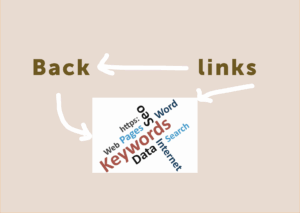
Artificial Intelligence (AI) has emerged as one of the most transformative technologies of our time. With the ability to mimic human intelligence and perform tasks that required human intervention, AI has revolutionised industries, enhanced decision-making, and altered the way we work and live.
In this blog, we explore the concept of AI, the various subfields, applications across diverse sectors, and the ethical considerations surrounding its adoption.
Defining Artificial Intelligence
Artificial Intelligence refers to the simulation of human intelligence in machines that are programmed to learn, reason, and make decisions. It encompasses a broad range of technologies and techniques, including machine learning, natural language processing, computer vision, and robotics. AI systems analyse vast amounts of data, recognise patterns, and derive insights to perform tasks such as speech recognition, image classification, autonomous driving, and predictive analysis.
Subfields of Artificial Intelligence
1. Machine Learning (ML) enables computers to learn from data and improve performance without explicit programming. By utilising algorithms to identify patterns, predictions can be made based on data analysis.
2. Natural Language Processing (NLP) focuses on enabling computers to understand, interpret, and respond to human language. It involves tasks like sentiment analysis, language translation, and chatbot interaction.
3. Computer Vision involves enabling machines to understand and interpret visual information from images or videos. This is used in applications for facial recognition, object detection, and autonomous navigation.
4. Robotics combine AI and physical systems to create intelligent machines that can interact with the physical world. Robotic systems perform complex tasks, ranging from industrial automation through to surgical procedures.
Applications of Artificial Intelligence
AI has been deployed across a wide range of sectors, assisting in the transformation of industries, and creating new opportunities:
1. Healthcare: AI has made significant contributions to healthcare, aiding in disease diagnosis, drug development, and personalised medicine. Machine Learning algorithms analyse medical images, enabling early detection of disease like cancer. AI-powered chatbots and virtual nurses provide personalised patient support and enhance healthcare accessibility.
2. Finance: AI algorithms are used in financial institutions for fraud detection, risk assessment, and algorithmic trading. AI-powered chatbots assist customers in financial transactions and provide personalised financial advice.
3. Transportation: Self-driving cars are revolutionising the transportation industry. AI algorithms analyse sensor data and make real-time decisions to navigate safely and efficiently. Additionally, AI optimises traffic management systems, reducing congestion and enhancing transportation logistics.
4. Manufacturing: AI-driven automation improves productivity and efficiency in automated manufacturing. Robots and cobots work alongside human workers, performing repetitive tasks efficiently and reducing the risk of accidents. AI-based predictive maintenance enhances equipment reliability, reducing possible downtime.
5. Customer Service: AI-powered chatbots and virtual assistants handle customer inquiries, providing round-the-clock support. Natural Language Processing enables these systems to understand and respond to customer queries accurately and efficiently, improving customer satisfaction.
Ethical Considerations and Challenges
The adoption of AI also raises important ethical considerations and challenges:
1. Privacy and Data Protection: One of the foremost ethical concerns surrounding AI is the preservation of privacy and data protection. AI systems often require vast amounts of data to train and improve their performance. However, this dependence on data raises questions about the collection, storage, and usage of personal information. Organisations must ensure that individuals’ consent is obtained, and data is anonymised and adequately secured. Transparency in data handling practice is crucial in maintaining public trust, mitigating potential abuse and unauthorised access to sensitive data.
2. Fairness and Bias: Another significant consideration is the potential for AI systems to perpetuate biases or discrimination present in the data they are trained on. Biased data can lead to biased outcomes, reinforcing and amplifying existing social inequalities. It is essential to address this issue by promoting diversity and inclusivity in the development and training of AI systems. Robust testing and validation procedures should be implemented to identify and mitigate biases, ensuring fair treatment across different demographic groups. Moreover, transparency in AI algorithms and decision-making processes can help expose and rectify biases.
3. Accountability and Transparency: AI systems often operate autonomously, making decisions that have significant consequences for individuals and society. This autonomy raises questions about accountability and transparency. It is crucial to establish mechanisms for understanding and explaining AI’s decisions, especially in sensitive domains like healthcare and criminal justice. Clear lines of responsibility should be defined to determine who is liable for the actions and outcomes of AI systems. Additionally, transparency in AI design and functionality can facilitate audits, promote public understanding, and enable effective oversight to prevent potential misuse or abuse.
4. Human Values and Ethical Design: AI should be designed with a strong ethical framework that aligns with human values. Ensuring that AI systems respect human dignity, privacy, and autonomy is of paramount importance. Ethical considerations should be integrated into the entire lifecycle of AI development, from data collection and algorithm design to deployment and ongoing monitoring. Multi-disciplinary collaboration involving ethicists, social scientists, and domain experts can contribute to the development of AI technologies that enhance human well-being, while avoiding harm and unintended consequences.
As AI continues to advance, it is crucial to address the ethical considerations associated with its use. Protecting privacy, promoting fairness, ensuring accountability, and embedding human values are key pillars that need to be prioritised. Striking the right balance between technological progress and ethical responsibilities should assist to maximise the positive impact of AI whilst minimising potential harm.





